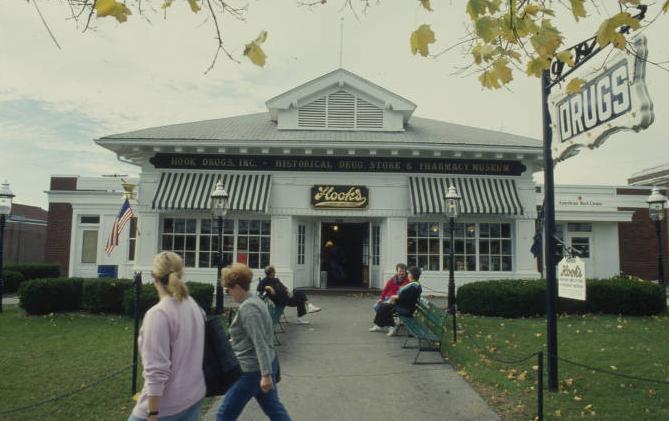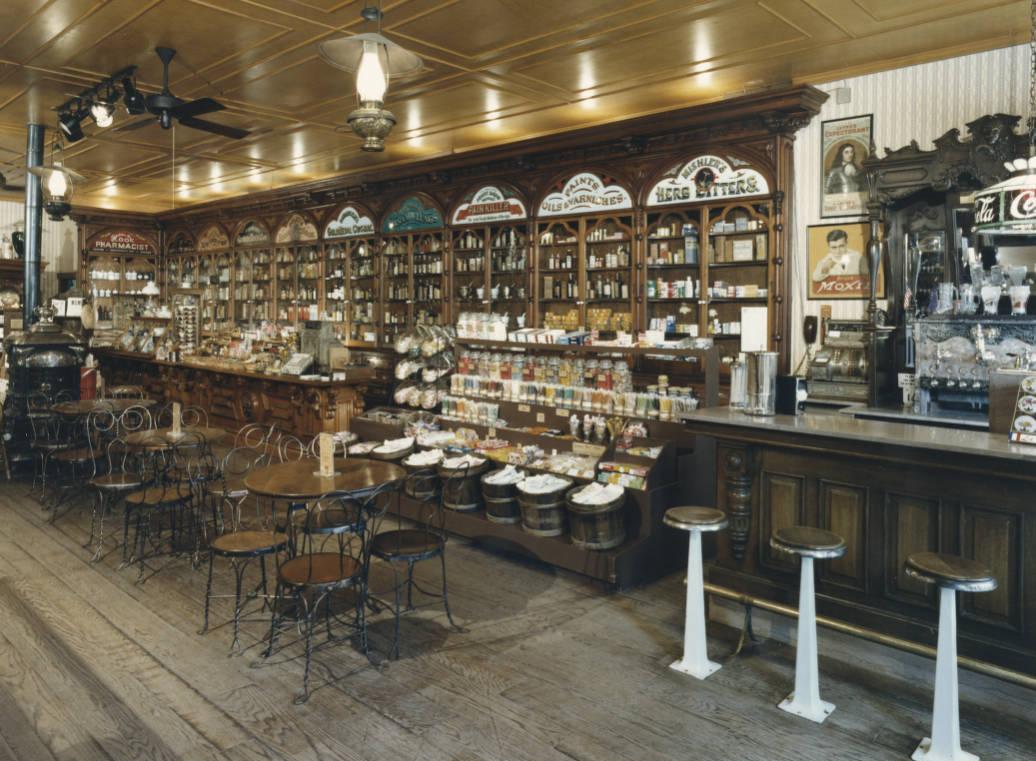Located in the Indiana State Fairgrounds, the Hook’s museum was opened in August 1966, as part of commemoration of the 150th anniversary of Indiana’s admission to the Union. Hook’s vice president James M. Rogers, who collected drugstore fixtures from throughout the state, planned and supervised its creation.

The turn-of-the-20th-century drugstore, which is housed in the former Indiana State Board of Health Building at the State Fairgrounds, features furnishings and other paraphernalia originally purchased from a Cambridge City, Indiana, drugstore. Other pharmaceutical items were obtained from collectors and drugstores. The restored building’s two rooms displayed drugs, patent medicines, advertisements, apothecary bottles, mortars and pestles, cameras, pens, and other items usually sold in a turn-of-the-20th-century drugstore. Museum visitors could also purchase candies, sundries, or ice cream treats from an old-fashioned soda fountain.
From the late 1990s into the early 2000s, the mission and ownership went through several changes. In 1998, plans to expand the holding resulted in the formation of the nonprofit organization the Hook’s American Drugstore Museum. In 2000, the organization subsequently reformed as Hook’s Discovery and Learning Center (HDLC) with a focus on life sciences and education instead of history. The Drugstore Museum no longer kept daily hours, opening daily only for the annual and hosting various private events.

In 2004, Robert Hunt, a Greenfield resident who also was an employee of and had an interest in pharmacy history, created the Greenfield Museum Initiative and offered to take over the operations. The nostalgic nature of the museum proved more successful than life science education at the site.
Over 50,000 visitors pass through the building during the Indiana State Fair.

Help improve this entry
Contribute information, offer corrections, suggest images.
You can also recommend new entries related to this topic.